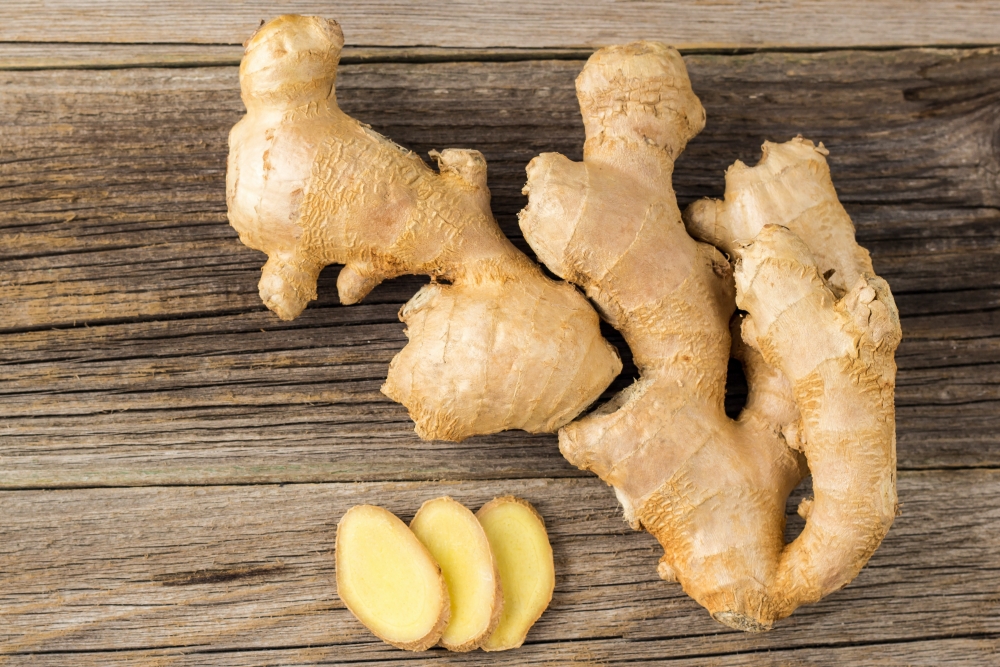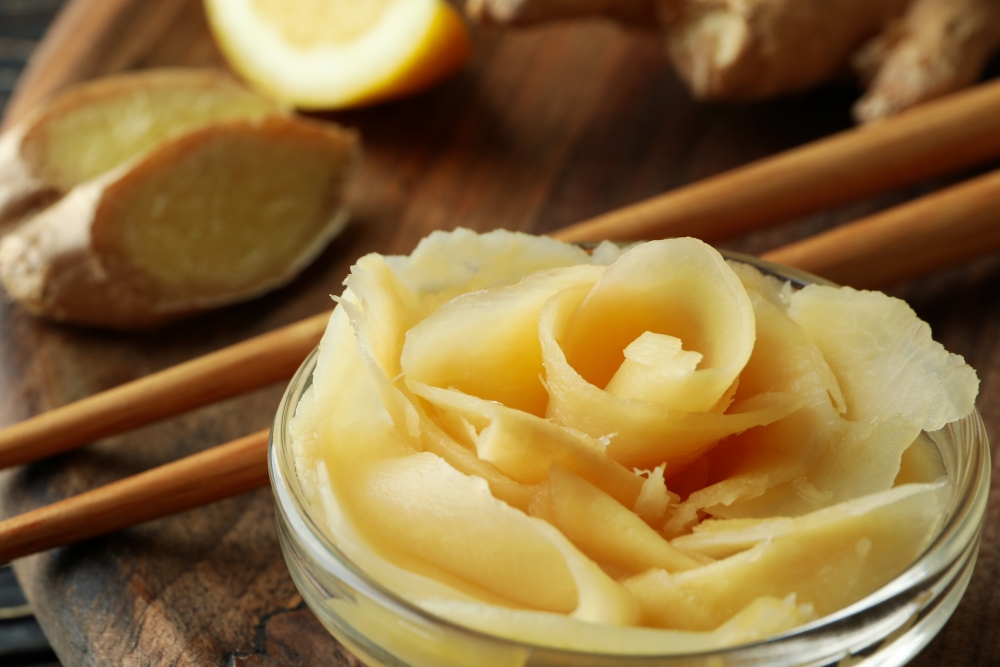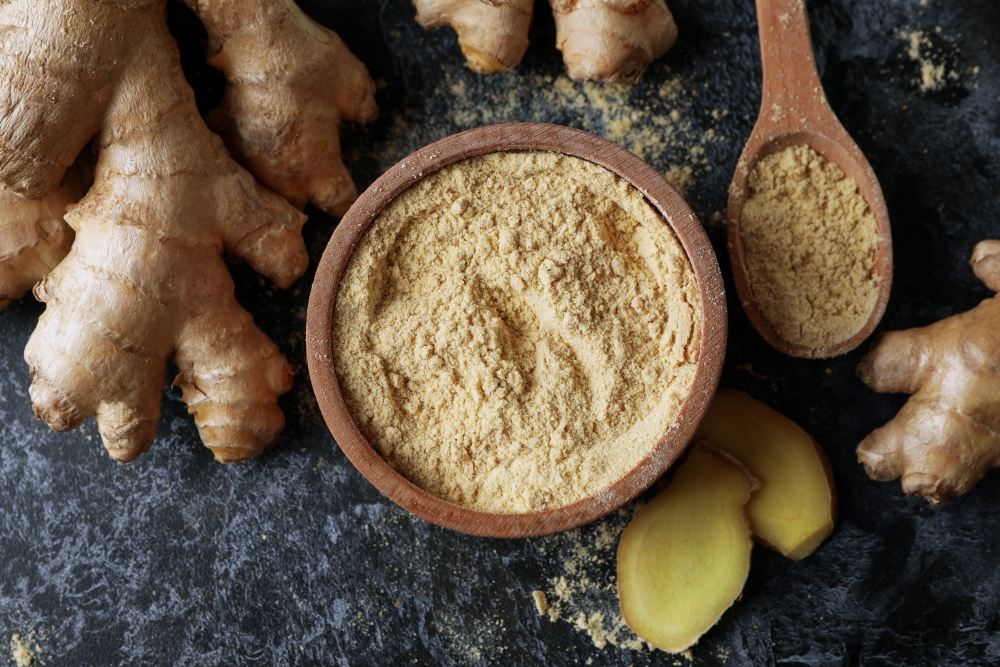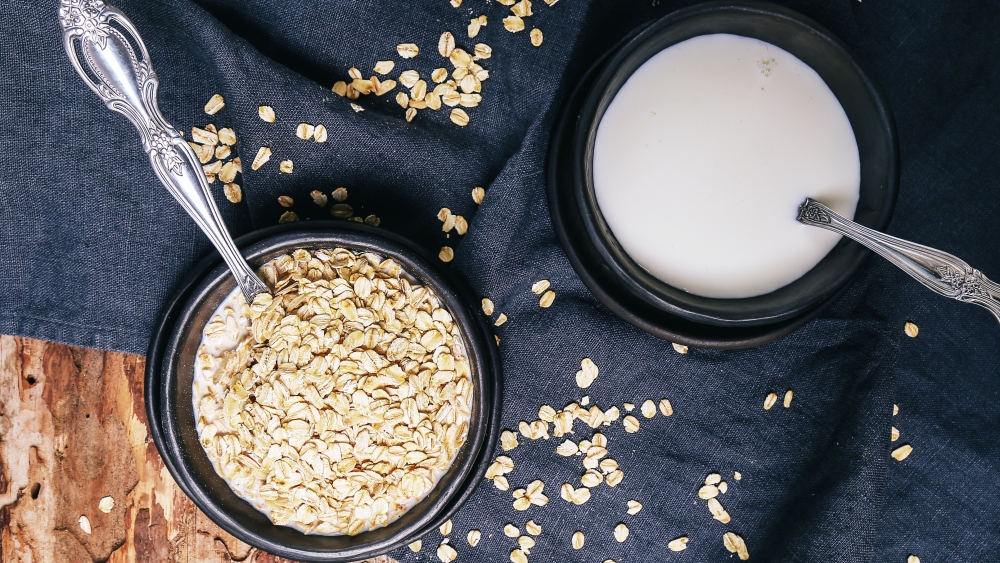Ginger, a root with multiple uses in cooking and medicine, is an ingredient with a long history and an impressive array of health benefits. Throughout the ages, it has been prized for its distinct taste and healing properties. Let's take a look at why we should like ginger, why we should embrace ginger in our diet.

Ginger (Zingiber officinale) is a tropical herbaceous plant native to Southeast Asia, known for its aromatic and pungent root. It is used both in cooking, for flavouring food and drinks, and in traditional medicine for its therapeutic properties.
Preparations with ginger
There are a variety of delicious dishes that use ginger as a main ingredient or flavouring. Some of the most popular dishes are these:
- Ginger tea: One of the easiest and most popular ways to use ginger is by making an aromatic tea. It can be prepared simply by boiling fresh ginger root in water, adding honey and lemon for extra flavour and health benefits.
- Curry with ginger: Fresh or powdered ginger can be added to various curry recipes to give a spicy and aromatic touch. Different types of meat or vegetables can be used, and ginger perfectly complements the flavours and spices used in curries.
- Ginger biscuits: Dried ginger is a classic ingredient in biscuit recipes, providing a warm and spicy flavour. Ginger biscuits are especially popular during the winter holidays and can be enhanced with lemon glaze or melted chocolate.
- Ginger cakes: Cake recipes that include ginger are often preferred for their unique and delicious taste. From muffins and tarts to roulades and pies, ginger can be incorporated into a variety of sweet and healthy desserts.
- Sushi with marinated ginger: Marinated ginger, known as gari in Japanese cuisine, is often served with sushi to neutralise the taste before tasting another type of sushi. It has a slightly sour and sweet taste that perfectly complements the taste of sushi.
- Ginger smoothies: Adding fresh ginger or ginger powder to smoothies can provide a spicy and refreshing touch. Combined with fresh fruit, green vegetables and other healthy ingredients, ginger can be a delicious and nutritious addition to your morning smoothies.
These are just a few of the most popular ginger dishes, but there are plenty of other culinary options using this versatile ingredient.

Reasons why we should like ginger
- Health benefits:
- Anti-inflammatory and antioxidant properties: Ginger is known for its antioxidant and anti-inflammatory properties. Ginger contains bioactive compounds such as gingerol, which have been shown to reduce inflammation and combat oxidative stress in the body, helping to protect cells from damage and prevent chronic disease. Regular consumption of ginger can help reduce inflammation in the body, thus protecting against chronic diseases such as heart disease and cancer. It can help lower the risk of infections, as ginger extract has the ability to inhibit the growth of various types of bacteria. Ginger is effective against oral bacteria and viruses that cause respiratory infections.
- Stimulates digestion and relieves constipation: Eating ginger can help improve digestion by speeding up emptying of the stomach and intestines, thereby reducing abdominal discomfort and bloating. It can also help reduce nausea and nausea, and is recommended to relieve motion sickness.
- Benefits for the immune system: Ginger is rich in nutrients such as vitamin C, magnesium and iron, which are essential for supporting optimal immune system function. Regular consumption of ginger can help strengthen immunity and protect the body against infection.
- Beneficial effects on heart health: Studies have shown that ginger can help lower cholesterol and triglyceride levels in the blood, thereby reducing the risk of cardiovascular diseases such as hypertension and atherosclerosis.
- Analgesic properties: Eating ginger can be effective in reducing muscle pain and inflammation associated with conditions such as arthritis and osteoarthritis, providing a natural remedy for managing chronic pain.
- Taste and flavour: Ginger has a distinct taste and a strong, slightly spicy and refreshing flavour that can enhance many dishes and drinks. From hot teas to Asian soups and flavoured desserts, ginger can add an interesting and refreshing touch.
- Versatility in the kitchen: Ginger can be used in a variety of recipes, either raw or cooked. It can be chopped and added to smoothies or fresh juices, used to flavour teas or cakes, or included in traditional Asian dishes and curries.
- Nutrient richness: Ginger is a good source of vitamins and minerals such as vitamin C, magnesium and potassium, which are important for overall health and optimal body function.

In what form can ginger be consumed
Ginger can be eaten in a variety of dishes and in different forms, and the ideal amount to consume may vary according to individual preferences and needs. Here are some forms in which ginger can be eaten and some suggestions on the ideal amount to use:
Fresh, dried or preserved ginger
- Fresh: Fresh ginger can be added to various dishes such as curries, soups, salads or stir-fries. It can also be used to brew ginger tea or added to smoothies for extra flavour and nutrients.
- Dry: Dried ginger is available in powder form and is commonly used in baking recipes, such as cakes, biscuits or gingerbread. It can also be added to hot drinks such as tea or cider.
- Preserved: Ginger preserved in sugar syrup or vinegar is another popular option and can be served as a garnish for sushi, salads or meat, or added to cocktails or soft drinks.
Ideal amount of ginger in preparations
- Fresh ginger: For ginger tea, about 1-2 cm of fresh ginger root per cup of hot water is recommended. For flavourings in culinary preparations, the amount may vary according to personal preference.
- Dried ginger: In general, a teaspoon of dried ginger powder is enough to add flavour and aroma to culinary recipes. However, the amount can be adjusted according to personal preference.
- Preserved ginger: The amount of preserved ginger consumed may vary depending on how it is used and individual preferences. It is usually recommended to use it in moderation due to its sugar and salt content.
In general, it is important to consume ginger in moderate amounts and to be aware of your own body's reactions. If you have specific questions or concerns about eating ginger, it is always advisable to consult a nutrition or health professional.
What are the risks of consuming too much ginger
Although ginger has numerous health benefits, excessive consumption can, in some cases, cause unwanted side effects or interact negatively with certain medical conditions or medications. Here are some important things to consider:
- Stomach irritation: Excessive consumption of ginger can lead to irritation of the stomach lining, which can cause abdominal discomfort, heartburn or even gastric ulcers in susceptible individuals.
- Drug interactions: Ginger can interact with certain medicines, such as anticoagulants (which thin the blood), blood pressure medicines or diabetes medicines. It is important to consult a doctor or pharmacist before starting a regular ginger intake regime, especially if you are taking medication for any condition.
- Digestive problems: In large quantities, ginger can have a laxative effect, which can lead to diarrhoea or other digestive problems. People with sensitivities to spices or spicy foods should be especially careful about the amount of ginger consumed.
- Interactions with other conditions: People who suffer from blood diseases, kidney or gallbladder disorders, or who are pregnant should talk to a doctor before consuming large amounts of ginger or taking ginger-based supplements.
In general, for most people, moderate consumption of ginger in regular amounts in the kitchen is not associated with significant adverse effects. However, it is important to be aware of your own body's reactions and consult a specialist before making major changes to your diet or taking ginger supplements.
Here's to a little spice in our lives and a health of the highest order!
In conclusion, ginger is like a little hidden genius in our kitchen - always ready to amaze us! With eyebrow-raising properties - from anti-inflammatory and antioxidant, to easy digestion - ginger can not only add a delicious touch to culinary dishes, it's a boon to our health. It is therefore important to enjoy the taste and benefits of this wonderful ingredient and consider it an indispensable part of our healthy lifestyle. So let's put it on our shopping list and integrate it into our recipes - for a burst of taste and health on every plate!






